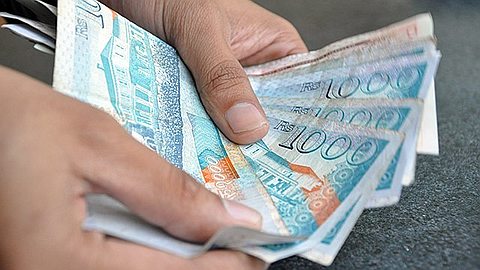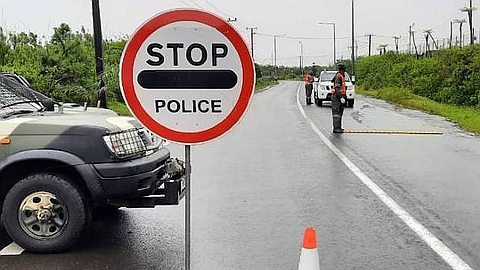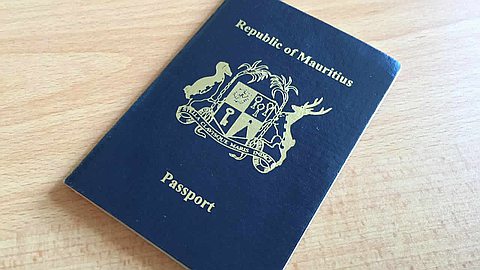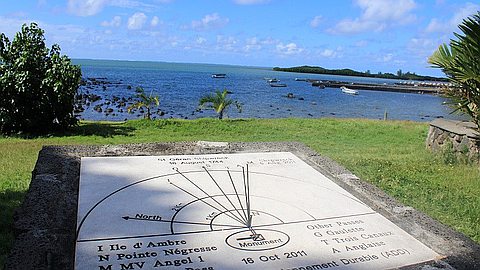History of Mauritius: For and Against Independence
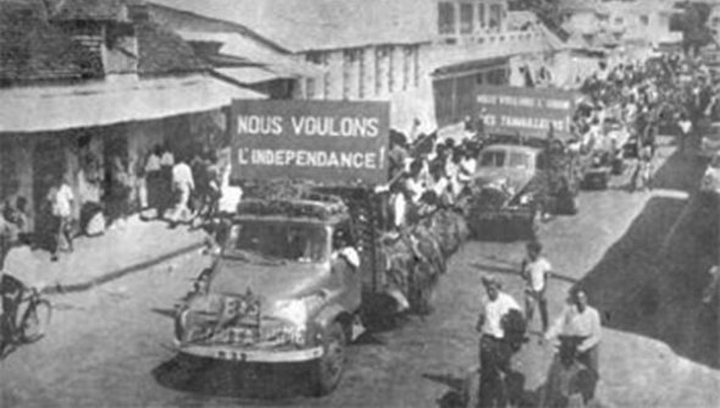
In the early sixties, Mauritius has for Head of State John Shaw Rennie, installed post March 12, 1958. The head of government is Dr Seewoosagur Ramgoolam, in office since 26 September 1961.
Those opposed to the project of independence sow fear and doubt in the minds of people. After all, it is logical that people dread the future without the direction of England. Wiil free Mauritius be able to stand on its feet by itself? How will it? With what resources? Part of the population decides to leave the country to settle elsewhere. This will be the exodus to Australia mainly.
"The sugar feared the approach of Dr Seewoosagur Ramgoolam," says Chitramun Dukhi Rai, better known as Chit Dukhira, former secretary of the city under the administration of Beau-Bassin/Rose-Hill PMSD MMM and then end political observer .
"Since 1936, the battle Ramgoolam was to expand democracy. He wanted a revision of the Constitution, which dates from 1885. At the time, everything was in the hands of whites. 90% of the population, including women, had no right to vote. The elections were for men educated and wealthy. Ramgoolam wanted to change that. The idea with the independence, power changes sides and passed to the Indo-Mauritian majority community came from and where Ramgoolam, does not absolutely pleased with those who held power. They then organized and orchestrated response of scholarly campaigns against independence. To achieve their purpose, they used the same political party, "he adds.
"I must say they found an opponent Ramgoolam in size. Although he came from a modest family, he was a grown man. He was also steeped in Western culture, having spent, against his will, 14 years in England. In addition, he had a flair for politics and successful shots that others before him were unable to PTr, "he said.
"During the struggle for independence, Arthur de Chazal say: 'What gets my respect Ramgoolam said, but I do not agree to amend the Constitution because the country is too backward.' Against by his brother, Malcolm de Chazal, was of a different opinion. He lives in a politician Ramgoolam avant-garde, "he says.
Besides the fear of losing his property, the ruling class at the time, said Dukhira was also afraid for the future of the language and the French culture, Ramgoolam with a preference for the English language.
On the other hand, all the colonies were independent being in difficult situations, it does not bode well for the country's independence, he noted.
"44% of people said no to independence. One, there was Raymond Rivet, who later confided to me that he regretted having been against it. There salute the greatness of Ramgoolam and his fight to make education accessible to all. '
"45 years later, thanks to the independence, we are a sovereign nation, we have dignity, we are better accepted. The vision of Sir Seewoosagur Ramgoolam is still running. We are a sovereign state. That the country has made in the areas of education and health is unique not only in third world countries, but even in some developed countries, "says Dukhira.
Communal campaign
"The elections of 1967 were marked by a communal campaign infects says historian Philip Li Ching Hum. Today, the effects are felt. Whiff racist slogans were painted across the country. There were clashes. The tension was palpable. The creation of the All Mauritius Hindu Congress by Dabee and Varma (as with one of the members, a Anerood Jugnauth) was a response to the actions of PMSD who sowed doubt in the sugar oligarchy. Distrust, cynicism and hatred on their faces in the streets. André Masson The Mauritian orchestrated a campaign against independence. For cons, the Express and Philippe Forget Advance of Aujnath Beejadhur and Marcel Cabon defended ardently campaign for independence. '
"Some poisoned by this campaign, chose to leave for Australia. Pier D offered harrowing scenes. People of color left everything to start from scratch. This was the brain drain. They were afraid of the hegemony of the majority community, carefully spread fear by anti-independence. Mauritius seemed lost. Even Professor Titmus had predicting 'doom and gloom' for Mauritius. '
Reconciliation
"But those who remained rolled up their sleeves to tackle the challenge of building a modern Mauritius. Many of those who were against independence have managed to get business and have made great progress. Some are at the head of empires today! We must salute the wisdom of Seewosagur Ramgoolam who opted for national reconciliation. His government was not a witch hunt. Magnanimity and vision of this great orator played a major role in national unity. The coalition between the Labour Party and the PMSD, after the 1967 elections, was in this sense. Moreover, it was the desire of a certain Paul Bérenger, then move to Mauritius for a holiday! '
What would have happened if the country had remained a British colony? "Take the example of our neighbor, Réunion. This may seem prosperous French colony in our eyes, but riots shook the chronic, as recently Cauldron, are alarming. Behind this facade hides rising unemployment. Young people seeking employment. Therefore Reunion explodes from time to time. Mauritius was in the same situation. We would have been a nation of welfare, if we did not get independence, "said Philip Li Ching Hum.
Other fans of the history of Mauritius argue that independence was inevitable for Mauritius. Britain s wanted rid of its colonies. She had no interest in keeping Maurice under his administration. Moreover, the fact that it has granted semi-autonomy to the island, after the first conference in 1961, was already a sign.
Community representation is redefined. Following a census conducted in 1952, the former categorization in terms of race and geographical origin is replaced by an ethnoreligious classification.
The community of Indian origin is now identified as Indo-Mauritians, and the Chinese community, Sino-Mauritians'. Ten years later, the Indo-Mauritian split in order to distinguish between Hindus and Muslims. As for whites and mestizos, they are assimilated under the name 'general population'.
The re-categorization of the population supports the structuring of a party system that opposes the Mauritian Labour Party Rally, created in 1952, brings together minority groups.
When the Labour Party is in favor of universal suffrage, Mauritius Rally opposes, claiming that proportional representation guarantees protection of minorities.
Multiparty
The British government intervenes in the debate and enact the 1958 Constitution which establishes universal suffrage for the election of Members of the Legislative Council. It is accompanied by a system of corrective appointments, ensuring minority representation.
The 1958 Constitution paves the way for a multiparty system. The principle of protection of minorities is a political asset size. The Rally Mauritius, Mauritius became the Party, stands alone, after removal of the Muslim Action Committee (MAC). In 1961, CAM knows turn dissension with the creation of democratic Muslim League.
Fragmentation of political supporters requires these parties to alliances between communities, any group not eligible to win the vote with a sizeable majority. Elections of 1959, the CAM is thus alliance with the Labour Party. His former ally, the Mauritian Party is weakened by the fact of representing the Franco-Mauritian, a minority group. It is a branch of salvation in the Independent Forward Block (IFB), a party founded in 1958 and representing the rural Indian electorate. Mauritian Party hopes drain the vote of other communities entering into this alliance with the IFB.
Opposition
A new constitutional conference was organized in 1961 to negotiate the constitutional status of the island. It will be followed by another in 1965. Following the 1961 conference, the British government agreed to a semi-autonomous island of Mauritius. This semi-autonomy is ensured by a national unity government composed of representatives of the four main parties in the Legislative Assembly, the Labour Party, the Mauritian Party, IFB and CAM.
Conference of 1965 emerges the principle of self-determination. But negotiations have failed and led to the breakdown of the coalition government. Four parties, it then goes to two major blocks. On one side: the Labour Party, CAM and which form an IFB Front for the independence of the other: the Mauritian Party, became the Mauritian Social Democratic Party (PMSD), which includes members of the Chinese community, the Hindus and the Muslim United Party and the Tamil United Party.
PMSD speaks of the risk when Maurice threatens independence. The majority is branded with slogans secondary in relation to its fashion dress.
Independence
General elections are held in 1967 and the Front for independence, led by Labor Sir Seewoosagur Ramgoolam, won 54% of the vote and a majority of seats in the Legislative Assembly. In August of the same year, the Legislative Assembly is in favor of independence. PMSD members leave the Chamber in protest before the vote. Mauritius achieved independence on 12 March 1968.
The government that runs the country is a coalition between the Labour Party and the PMSD, his ex-large opponent. What this coalition has imposed against nature? Besides the fact that no party can claim only win a majority of the population, the leaders understood the need to maintain cooperation with the sugar elite for economic development. Especially as within the Labour Party is a number of landowners and merchants Hindus who have common economic interests with the Franco-Mauritian sugar.
Before the coalition between PTr and PMSD, several riots broke out between supporters of the two factions, as in 1965 and 1967 and even requiring the establishment of a state of emergency in the months following independence.
Birth of MMM
It was during the imposition of a state of emergency that the Labour Party and the PMSD confer privately to a coalition. An alliance which is made without the approval of the political base of both parties, which leads to a rupture between the parties and their supporters. They come to the conclusion that leaders have more heart than their personal interests of their supporters. This will be the break.
This is the break and will be responsible for the birth of a new political movement: the Mauritian Militant Movement. Founded in 1969 by students from minority groups, it meets the aspirations of former supporters and PTr PMSD. MMM's speech is innovative: it denounces the use of communalism by parties for votes, power sugar which funds the PMSD and even challenged the legitimacy of the Labour Party. Population will rally en masse to MMM, which sweeps everything in its path in parliamentary elections in 1982, thus ending Labour hegemony which lasted for decades.
